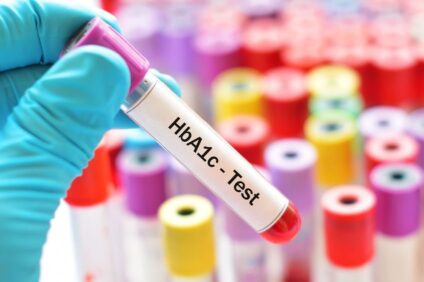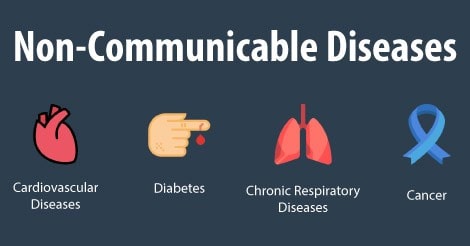services for patients with non-communicable diseases during the CoVID19 pandemic
CoVID-19 Pandemic and health care services
The outbreak of CoVID-19 and the pandemic of this viral disease in the world have been associated with many problems. Reducing attention to screening and periodic testing, especially for patients with diseases such as HIV, hepatitis, cancer, and diabetes has been one of the main effects of this pandemic on the health of the community and its people.
The reduction in periodic medical diagnostic tests to prevent the spread of complications of diseases such as diabetes, as well as periodic check-ups of patients with them, has raised concerns in this regard. Due to the high importance of this issue, patients should be encouraged to perform the necessary diagnostic and therapeutic tests.
In addition, according to the World Health Organization, services related to the prevention and treatment of diseases such as cancer, hepatitis, and non-communicable heart and respiratory problems (NCDs) declined sharply during the CoVID-19 pandemic. Unfortunately, with the onset of the CoVID-19 pandemic, almost all health facilities and services have been dedicated to the diagnosis and treatment of coronary heart disease. On the other hand, due to the high risk of developing severe symptoms in patients with diabetes, cancer, and other NCDs, these people delay the stages of disease monitoring and regular visits.

Non-communicable diseases
Non-communicable diseases (NCDs) are also known as chronic diseases and they are long-lasting. These diseases are the result of a combination of genetic, physiological, environmental, and behavioral factors.
The main types of NCDs include cardiovascular disease (such as heart attack and stroke), cancer, chronic respiratory disease (such as chronic obstructive pulmonary disease and asthma), and diabetes.
Complications of non-communicable diseases have a greater impact on people in low- and middle-income countries. More than three-quarters of all non-communicable disease deaths worldwide (31.4 million people) occur in these countries.
Prevention and control of non-communicable diseases
A key approach in order to control non-communicable diseases is to focus on reducing the risk factors associated with these diseases. There are low-cost solutions for governments. One of these strategies, which is relatively less expensive than treating and supporting patients with non-communicable diseases, is to monitor the progression and progression of non-communicable diseases at the community level. In other words, investing in better management of non-communicable diseases is important.
Management of non-communicable diseases includes the diagnosis, screening, and treatment of these diseases and access to the necessary care for people in need. Consistent approaches to provide primary health care to increase early diagnosis and timely treatment are excellent economic investment interventions in this area because if timely diagnosis and treatment services are provided to patients before the disease progresses, It can reduce the need for more expensive treatments.
How has the CoVID-19 epidemic affected the health of NCD patients?
According to the World Health Organization (WHO), the state of diagnosis and treatment for these diseases worldwide is extremely concerned, because people living with non-communicable diseases are at higher risk of severe illness and death from CoVID-19.
According to a report released in January 2020 by the WHO, many people with diseases such as cancer, cardiovascular disease, and diabetes have not received the laboratory services and medications they need since the CoVID-19 epidemic began. In general, the effects of CoVID-19 spread on non-communicable diseases can be divided as follows.
- Disruption of services: According to these reports, which have been collected from several countries around the world, up to 53% of services related to blood pressure have been disrupted. Also, up to 49% have problems in diagnosing and treating diabetic patients.
- Staff adjustment: In the majority (94) countries participating in the survey, health personnel working in the field of non-communicable diseases were engaged in treating and assisting patients with CoVID-19.
- Postponement of screening: Postponement of general and periodic screening programs (for example for breast and cervical cancer) has been reported in more than 50% of countries.
- Patients with NCDs are more likely to develop severe types of CoVID-19: Evidence suggests that people with diseases such as cancer and diabetes not only have a weaker immune system than others but are also more likely to develop severe types of CoVID-19. Therefore, patients postpone relevant tests and periodic visits for fear of contracting the coronavirus and CoVID-19 infection.
Alternative strategies for the ongoing care of NCDs
Different countries are trying to find new and effective ways to address this issue. Some of these cases will be mentioned below.
Telemedicine: In these cases, it is recommended that patients do not give up their periodic checkups and contact the doctor at a certain time via the Internet or telephone. If the patient needs a face-to-face visit, the doctor will make an appointment for this purpose. In this way, the so-called screened patients, only the clients will go to the office if necessary.
Using sampling services at home: We are all aware of the importance of periodic health check-ups for all members of the community. In addition, most patients need periodic checkups. For example, people with diabetes need to have an HbA1c test periodically in order to manage the disease as well as determine the dose of medication to be taken. Also, if your doctor diagnoses a person with diabetes, this test will be one of the diagnostic tests in this area. This test is sometimes called an HbA1c or glycosylated hemoglobin test.
HbA1c to glucose and hemoglobin that bind to each other; Refers. Hemoglobin is a protein found in red blood cells that helps carry oxygen throughout the body. The rate of HbA1c formation is directly related to blood glucose levels. The average lifespan of red blood cells is up to 120 days, so HbA1c shows the amount of sugar in the blood in the last few months. But a blood sugar test measures the amount of sugar in your blood at that moment.

One way to perform periodic testing of HbA1c at home by medical diagnostic laboratories is to send an experienced sampler home to a trusted laboratory.
Sending staff for in-home sampling is a method that is also common in Iran. Important points in this regard are the need for hygiene by the laboratory staff, the negative test of CoVID-19 dispatched forces to the patient’s home and having the necessary facilities to transport blood samples and other samples to the main laboratory are the most important points in this field.
Payvand Clinical and Specialty laboratory is one of the leading centers in providing in-home sampling services in Tehran. Payvand laboratory provides complete services for sampling at your place by using experienced personnel and complete facilities in the field of sampling and transporting patients’ samples. Click here with ease and away from the worries of getting CoVID-19 and aware of the steps and process of testing and sampling at Payvand laboratory.
References:
- https://www.who.int/news-room/fact-sheets/detail/noncommunicable-diseases#:~:text=The%20main%20types%20of%20NCD,disease%20and%20asthma)%20and%20diabetes.
- https://www.who.int/news/item/01-06-2020-covid-19-significantly-impacts-health-services-for-noncommunicable-diseases
- https://www.aacc.org/cln/articles/2021/july/HbA1c-access-and-opportunity-during-the-covid-19-pandemic
- https://www.healthdirect.gov.au/HbA1c-test



